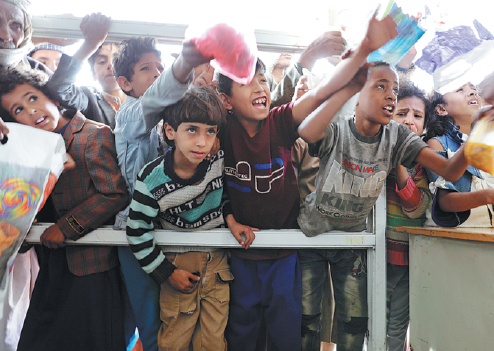Yemen separatists give up on self-rule in south, push for stalled peace deal

RIYADH, Saudi Arabia-Yemeni separatists on Wednesday abandoned their declaration of self-rule in the country's south and pledged to implement a stalled Saudi-brokered peace agreement with the government, a spokesman said.
The Southern Transitional Council, or STC, announced self-governance in April after accusing the government of failing to perform its duties, pushing the war-ravaged country deeper into crisis.
The STC "announces that it is abandoning its self-rule declaration" on Wednesday to allow the implementation of a power-sharing deal known as the Riyadh Agreement, spokesman Nizar Haitham wrote on Twitter.
He acknowledged the announcement came after Saudi Arabia and the United Arab Emirates exerted pressure to row back on their decision.
Saudi Arabia said it had proposed a plan to "accelerate" the implementation of the Riyadh Agreement, the official Saudi Press Agency reported early on Wednesday.
The plan calls for the Yemeni prime minister to create a fresh government within 30 days, as well as the appointment of a new governor and security director for the de facto capital Aden.
Yemen's separatists had signed the power-sharing deal in Riyadh last November that sought to quell a battle for the south-dubbed a "civil war within a civil war".
But the Riyadh pact quickly became defunct, failing to meet deadlines for key measures including forming a new Cabinet with equal representation for southerners, and the reorganization of military forces.
Political settlement
Zhang Jun, China's permanent representative to the United Nations, on Tuesday called for an end to hostilities and for a political settlement of the Yemeni issue.
The current situation in Yemen is not favorable. The international community must step up its efforts to push for an early breakthrough in the political settlement of the Yemeni issue, Zhang said.
He said that China supports the search for a solution to the Yemeni problem from the three aspects of a nationwide cease-fire, economic and humanitarian measures, and comprehensive political negotiations, he told the Security Council.
Parties to the conflict should stop violence and improve the security situation on the ground, said Zhang.
UN Under-secretary-General for Humanitarian Affairs Mark Lowcock warned on Tuesday that the humanitarian crisis in Yemen has never been worse.
"Famine is again on the horizon. Conflict is again escalating. The economy is again in tatters. Humanitarian agencies are again nearly broke," Lowcock told the Security Council in a briefing. "And then the new problems: COVID-19 is spreading out of control, and we have the sorry saga of the Safer tanker?"
Lowcock warned that funding for the aid operations in Yemen is on the verge of collapse.
The United Nations and partners used to provide food to 13 million hungry people every month in Yemen. Because of funding cuts, only 5 million of those people are still getting full rations. Eight million have had their rations cut in half. Similar cuts are affecting millions of people who rely on aid for water, healthcare and other needs, he said.
Xinhua - Agencies































